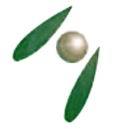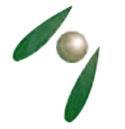Potassium carbonate
Potassium carbonate Specification
- Moisture (%)
- 0.5% max
- EINECS No
- 209-529-3
- Molecular Weight
- 138.205 g/mol
- Heavy Metal (%)
- 0.002% max
- Loss on Drying
- 1.0% max
- Molecular Formula
- K2CO3
- Storage
- Store in a cool dry and well-ventilated place
- Assay
- 98.5% - 99.5%
- HS Code
- 28364000
- Boiling point
- Decomposes before boiling
- Melting Point
- 891 C
- Particle Size
- Various grades available
- Ph Level
- 11.6 (5% solution)
- Other Names
- Pearl ash Salt of tartar
- CAS No
- 584-08-7
- Type
- Inorganic Compound
- Grade
- Industrial Grade
- Usage
- Widely used in glass manufacturing textiles and food processing
- Purity
- 99% min
- Appearance
- White crystalline powder
- Application
- Glass industry ceramics soap and detergent production food additive (E501)
- Raw Material
- Potassium hydroxide Carbon dioxide
- Smell
- Odorless
- Color
- White
- Form
- Powder
About Potassium carbonate
Name: Potassium carbonateSynonyms : Potassium carbonate anhydrous
Molecular Formula: K2CO3
Molecular Weight : 138.19
CAS Registry Number: 584-08-7
EINECS 209-529-3
It can be made as the product of potassium hydroxide's absorbent reaction with carbon dioxide. It is deliquescent, often appearing a damp or wet solid. Potassium carbonate is used in the production of soap and glass.
Pearl ash has been used for soap, glass, and china production.
Potassium carbonate is used in reactions to maintain anhydrous conditions without reacting with the reactants and product formed. It may also be used to pre-dry some ketones, alcohols, and amines prior to distillation.
FAQs of Potassium carbonate:
Q: What are the main applications of Potassium carbonate in the industry?
A: Potassium carbonate is widely used in the glass industry, ceramics, soap and detergent production, and as a food additive (E501).Q: What is the purity level of Industrial Grade Potassium carbonate?
A: The Industrial Grade Potassium carbonate has a purity level of 99% minimum with an assay ranging from 98.5% to 99.5%.Q: How should Potassium carbonate be stored?
A: Potassium carbonate should be stored in a cool, dry, and well-ventilated place to ensure its quality is maintained.Q: What is the chemical formula of Potassium carbonate?
A: The molecular formula of Potassium carbonate is K2CO3, with a molecular weight of 138.205 g/mol.Q: What is the appearance of Potassium carbonate?
A: Potassium carbonate appears as a white crystalline powder with no distinct odor.

Price:
- 50
- 100
- 200
- 250
- 500
- 1000+
More Products in Minerals & Trace Elements Category
Copper gluconate
Application : Other, Pharmaceutical industry food and beverage industry
Grade : Food Grade
Usage : Nutritional supplement dietary applications
Storage : Other, Store in a cool dry place away from light
Purity : 99% min
CAS No : 527093
Magnesium gluconate
Application : Other, Used to treat magnesium deficiency nutrient formulations pharmaceuticals
Grade : Other, Pharmaceutical Grade
Usage : Dietary supplement Pharmaceutical additive
Storage : Other, Store in a cool dry place
Purity : 99%
CAS No : 3632915
Ferrous gluconate
Application : Used in pharmaceuticals dietary supplements and food products as an iron fortifier, Other
Grade : Other, Food Grade Pharmaceutical Grade
Usage : Iron supplement Food additive
Storage : Other, Store in a cool dry place away from direct sunlight
Purity : 98% min
CAS No : 299296
Chromium polynicotinate food grade
Application : Other, Pharmaceutical Industry
Grade : Medicine Grade
Usage : Pharmaceutical
Storage : Keep away from moisture , Other
Purity : 100%

 Send Inquiry
Send Inquiry






 Send Inquiry
Send Inquiry English
English Spanish
Spanish French
French German
German Italian
Italian Chinese (Simplified)
Chinese (Simplified) Japanese
Japanese Korean
Korean Arabic
Arabic Portuguese
Portuguese